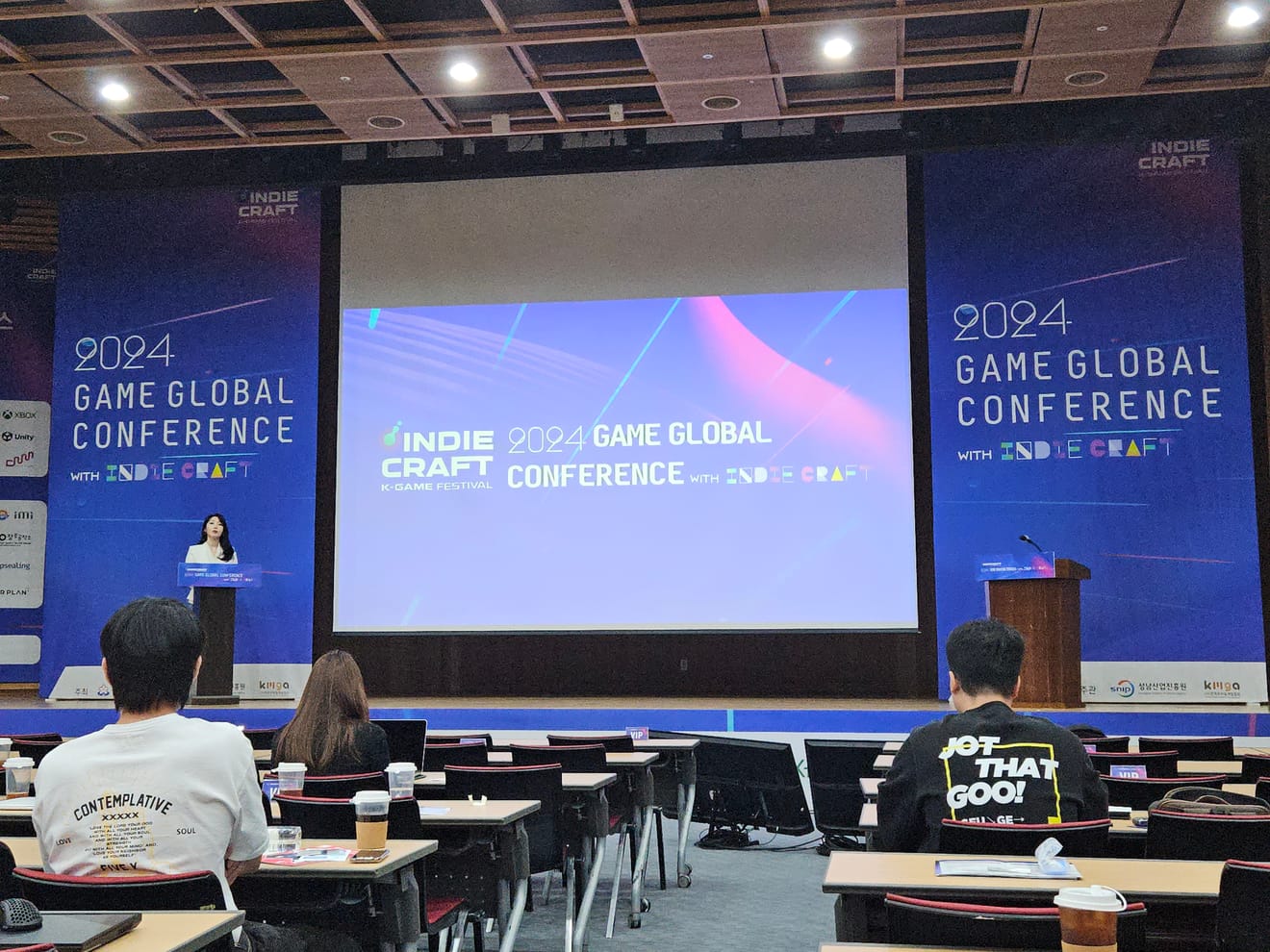Subject
- #Game Marketing
- #Global Expansion
- #Indie Games
- #Mobile Games
- #Game Market
Created: 2024-06-03
Created: 2024-06-03 10:58

Sharing my reflections on the first day of the 2024 Game Global Conference with Indie Craft, held on May 30th.
Many individuals from OneStore, Supercent, Proxy Planet, Unity Technologies Korea, IVE Korea, Grampus, Major Nine, Aloha Factory, and Gachon University's Game and Video Engineering department shared valuable insights. I'd like to share some of the most insightful takeaways.
1) OneStore
Firstly, OneStore is challenging Google and Apple in the app store business. They shared key elements for indie game success.
They also highlighted the advantages of collaborating with OneStore, such as: Pre-installed on all Android smartphones, providing excellent accessibility. Easy and diverse payment options. User-friendly promotions. Availability of telecom membership points and gift certificates. Lower commission fees compared to other stores. 50% lower commission for SMEs and indie game developers. They operate an Indie Game Zone, allowing for optimized top placement.
Furthermore, they are on the verge of expanding overseas, suggesting that they can assist with international expansion.
2) Supercent
Supercent CEO, Joonsik Kong, discussed the challenges and opportunities within the mobile game industry. They have achieved success through launching various hyper-casual games. However, the game market remains challenging.
Many users are switching to short-form media, causing traditional models to collapse. However, the hyper-casual game genre is experiencing significant growth due to its similarity to short-form media.
Therefore, it's essential to analyze market potential and profitability, learn from non-gaming apps, adapt to change, and release more new games. Similar to Temu (e-commerce app) successfully attracting users by incorporating gaming elements, game apps should also explore incorporating diverse elements.
Specifically, international revenue accounts for 97% of their total revenue. This emphasizes the importance of global launches, and localization is crucial.
3) IVE Korea
IVE Korea's Director, Byungsun Yoon, shared insights into the success of Last War. Game advertising spending is high, but the game's competitors aren't other games or genres, but rather 'spouses'. This was a refreshing perspective.
He also emphasized that games should be easier to play and that monetization should focus on those who consistently make purchases. Targeting such users is key.
4) Grampus
Grampus CEO, Jiin Kim, shared their global journey with cooking simulation games.
They continuously release cooking-related games, and based on their experience with Lesson Run, they believe that female gamers might demonstrate more loyalty than male gamers. While not a generalization, men tend to delete games more readily if they don't suit their preferences or feel.
They've collaborated with numerous F&B brands and celebrities, achieving success through fandom-based marketing. Leveraging fandom-based marketing could be a strong strategy.
5) Major Nine
Major Nine's Director, Byoungyong So, discussed Steam.
Ultimately, the fundamental strategy for Steam success is to open a store page and gather wishlists and feedback. They emphasized the importance of creating high-quality trailers, screenshots, descriptions, and tags. Also, sending emails to users who have added the game to their wishlists to promote it.
The best marketing tools are ultimately the 'game' and the 'content' itself. They stressed data-driven marketing strategies by leveraging various social media and platforms and sharing data.
In essence, the marketing strategy includes:
This requires advertising, testing, and content creation.
I've briefly summarized the content, but I believe that attending the conference will provide a more in-depth understanding. I extend my support to all game developers and related professionals in their business endeavors.
If you need game translation and localization, please contact durumis!
Comments0